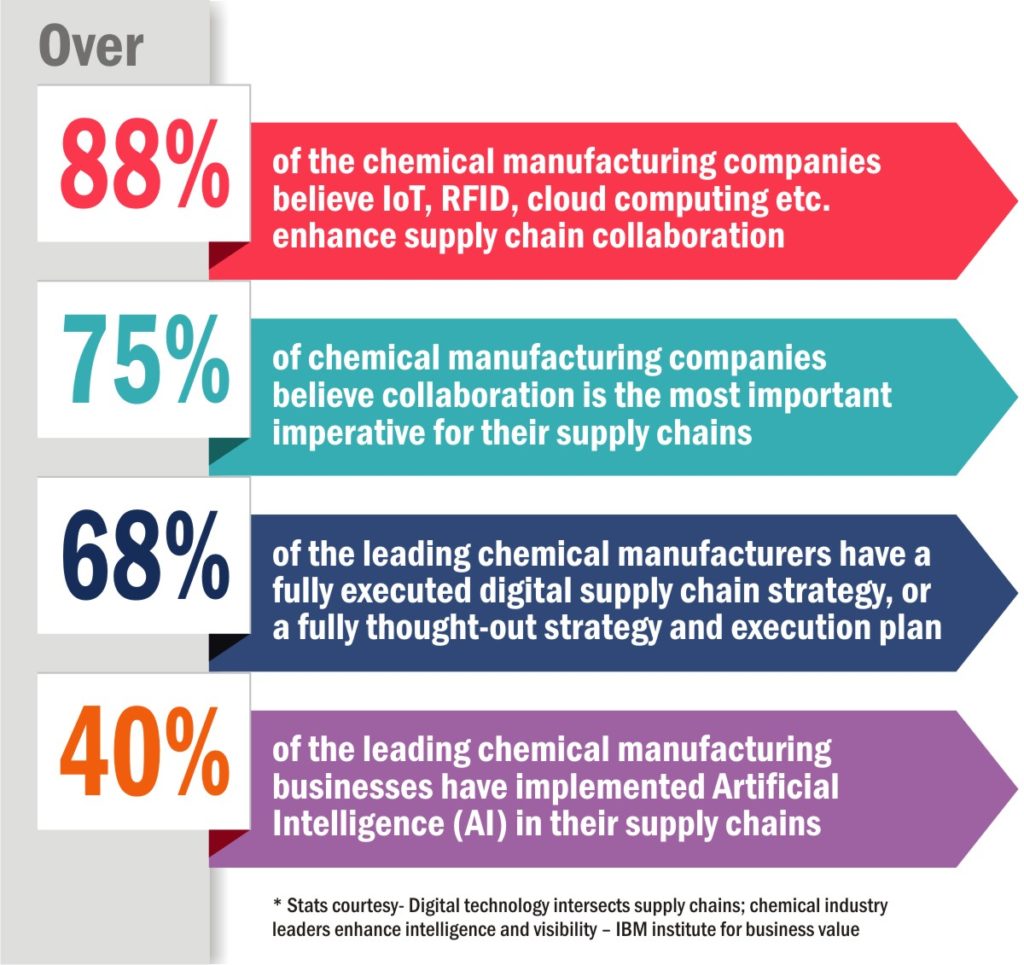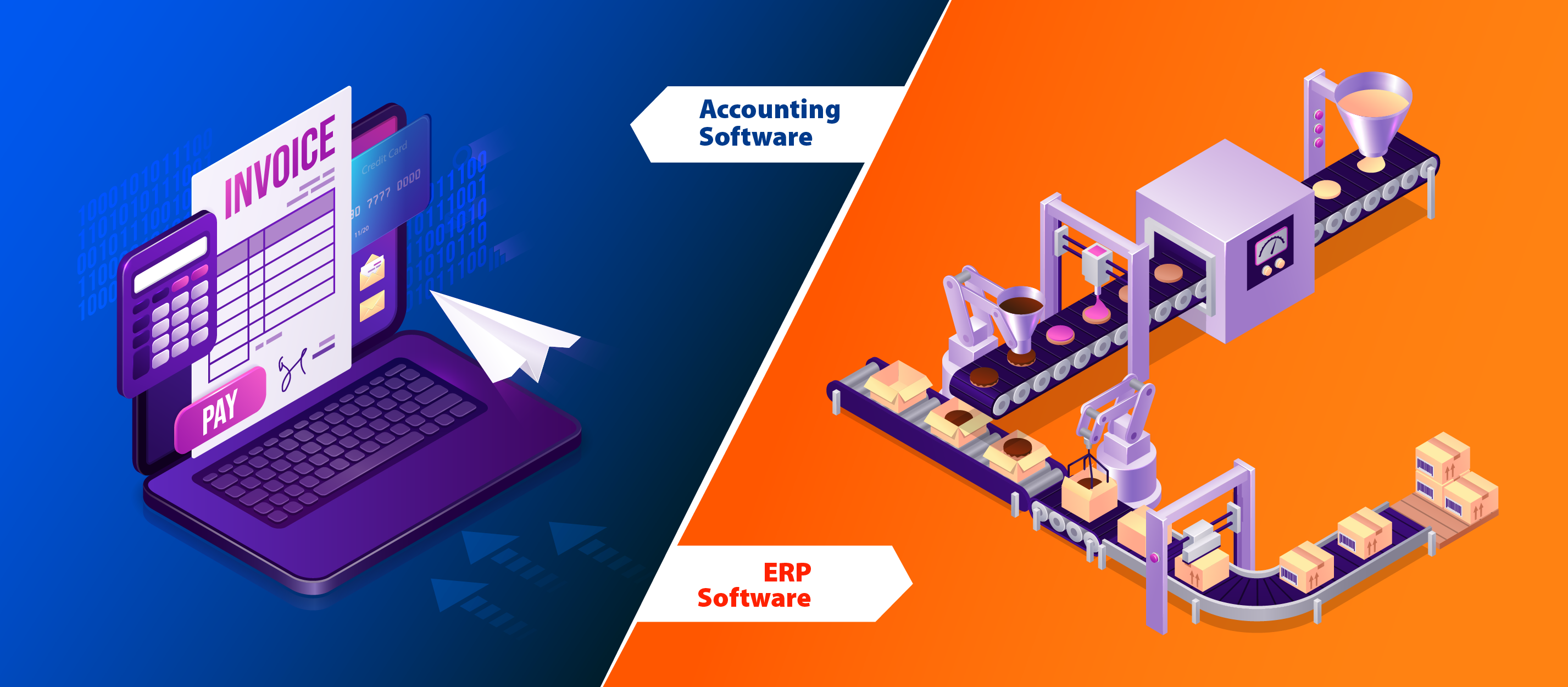
The chemical manufacturing industry operates in a highly-regulated environment, and in one of the most multifaceted supply chains in the world, which includes an inter-dependent logistics network of road, rail, and sea that must safely transport vast quantities of raw materials, and finished products.
Characterized by hazardous raw materials/end products, volatile market trends, stringent regulatory framework, and a complex manufacturing process, the industry often finds itself in tricky situations.
There’s this constant pressure to comply with domestic and international regulations like REACH, GHS, SARA reporting, etc. for hazardous materials.
There’s also the need for the chemical manufacturers to make efforts towards waste disposal management, radiation protection, industrial hygiene and safety, etc. to do their bit towards the environment, apart from addressing challenges driven by frequent changes in consumer preferences, increasing item proliferation, and shortening product cycle, among others.
Where does this leave the chemical manufacturers?
All these factors come together to increase risk and unpredictability quotient for the chemical manufacturers.
In such a scenario, manufacturers must look to discover future trends in chemical manufacturing and supply chain technologies, so that they are well prepared to address current and future issues, and are in a better position to remain competitive.
They need to find ways and tools to meet the regulatory requirements, optimize the operating costs without compromising on safety and quality standards, and indulge in continuous innovation through R&D, etc.
Adoption of technology and other digital platforms is one such option
It allows chemical manufacturers to rapidly develop new products in such a manner that it minimizes their impact on people, environment, and the entire lifecycle.
These tools also embed safety and compliance requirements along those lifecycles and monitor the impact of changes in regulatory requirements on products in real time so that the chemical manufacturing companies can respond accordingly.
Let’s take a look at the trends that are going to impact the chemical manufacturing industry in the near future:

Digital technologies
By implementing digital technologies, the chemical manufacturers can improve the cost-effectiveness through the new-found agility, and productivity, and also innovate.
These technologies offer them analytical tools that facilitate collaborative research and development, so that the manufacturers can speedily accelerate innovation to gain competitive advantage, and create growth opportunities.
These technologies include:
- Internet of things (IoT), which enables the chemical industry to get tremendous value from connected devices all around them, besides creating a supply network with end-to-end visibility for all the stakeholders in the value chain.
- Artificial intelligence (AI) machine learning, and robotics, which allow chemical manufacturers to introduce automation and engage autonomous equipment with the help of data, making way for smarter processes and faster transactions.
- Blockchain technology, which allows to digitally document every single movement of the products in the supply chain. The digital record of the products can be kept, and they can even be traced back to the product manufacturer and even the manufacturer of their precursor agents. Blockchain can also help in ensuring the physical integrity of a product.
From a supply chain perspective, digital technologies can play a massive role in chemical manufacturing industries.
A digital supply chain can dynamically predict demand patterns while improving visibility and leveraging asset availability, enabling rapid decision making based on forecast variance, order changes, market intelligence etc.
Machine learning, in particular, can help manufacturers mitigate risks of supply chain disruptions.
For instance, in case of natural disasters, shipments could be automatically re-routed to meet on-time delivery goals and customer commitments at minimum costs.
Then there’s autonomous driving and logistics automation that can transform the chemical supply chain.
The smart Automated Guided Vehicles (AGV) technology can help transport goods from the warehouse to the manufacturing lines and the other way around without manual intervention, saving precious time and resources.
Technologies like Radio-Frequency Identification (RFID) and telematics impact another important aspect of the chemical supply chain, i.e. cold chain management; ensuring temperature-sensitive products don’t lose their efficacy while moving through the supply chain.

The advantages these technologies offer
Technologies can also help optimize manufacturing plans, maintain control of highly-regulated products throughout the supply chain, improve quality and yield of manufacturing operations from design through support, and increase resource consumption efficiency while reducing costs.
Some of the benefits of a digital supply chain include:
- Optimized inventory
- Improved demand forecasting
- Improved supply allocation and distribution decisions
- Better management of material quality and risks
- Increased real-time visibility into operations
- Better management of transportation disruptions
- Reduced logistics & operating costs
- Increased revenues
- New market opportunities
- Improved service responsiveness
Big Data Analytics
Big data analytics plays a huge role in helping manufacturers manage the volatile market trends with respect to the price and availability of raw materials, as well as to deal with changing customer demand.
These rapidly changing trends generate massive data, and the manufacturers rely on Big Data tools to analyze these data sets and get valuable, timely, & actionable information out of them.
Big Data empowers them by removing the need for endless chains of approval.
With real-time cloud-based relevant data in their hands, chemical manufacturers can make decisions on the plant floor or at the customer site without having to wait to talk to the authority at the end of the day or after getting back to the office.
Smart Manufacturing
With technologies such as advanced analytics more readily available these days, chemical manufacturers can make information about manufacturing processes available at the right place and time in the right form, allowing the key stakeholders to make smart decisions regarding various critical business operations.
Predictive Analytics
Predictive analytics is being touted as the technology that can help the chemical manufacturers optimize and streamline their operations.
By integrating with their existing IT infrastructure, it can forecast technical glitches and predict future trends, thus helping in enhancing operational efficiency.
Right from conception, planning, to execution, and post-sale service, the predictive analytics technology has a huge role to play, as it can help the manufacturers develop better products/services, improve their response time, manage the machines/equipment, and stay ahead of the curve for delivering better customer experience.
To sum up
The digital technologies mentioned above that support the future trends in chemical manufacturing and supply chain won’t succeed in a vacuum.
It will be the blend of these technologies with other things such as a skilled workforce, and the right chemical ERP software for chemical industry, that will lay the foundation of a strong IT infrastructure for the chemical manufacturing companies.
Only with a combination of all these factors can chemical manufacturers leverage the aforementioned technologies across all of their business functions.
Talking about the ERP for chemical industry, it plays a critical role in allowing the organization to operate with visibility, focus, and agility to achieve game-changing outcomes using the technologies.
An ERP system for chemical manufacturing is instrumental in allowing the workforce to deliver a best-in-class customer experience, and helping the management invent new business models and revenue streams.
BatchMaster ERP software for chemical industry is one such potent system which is every process manufacturers’ delight. Connect today with our ERP experts for consultation or to schedule a free demo.



















